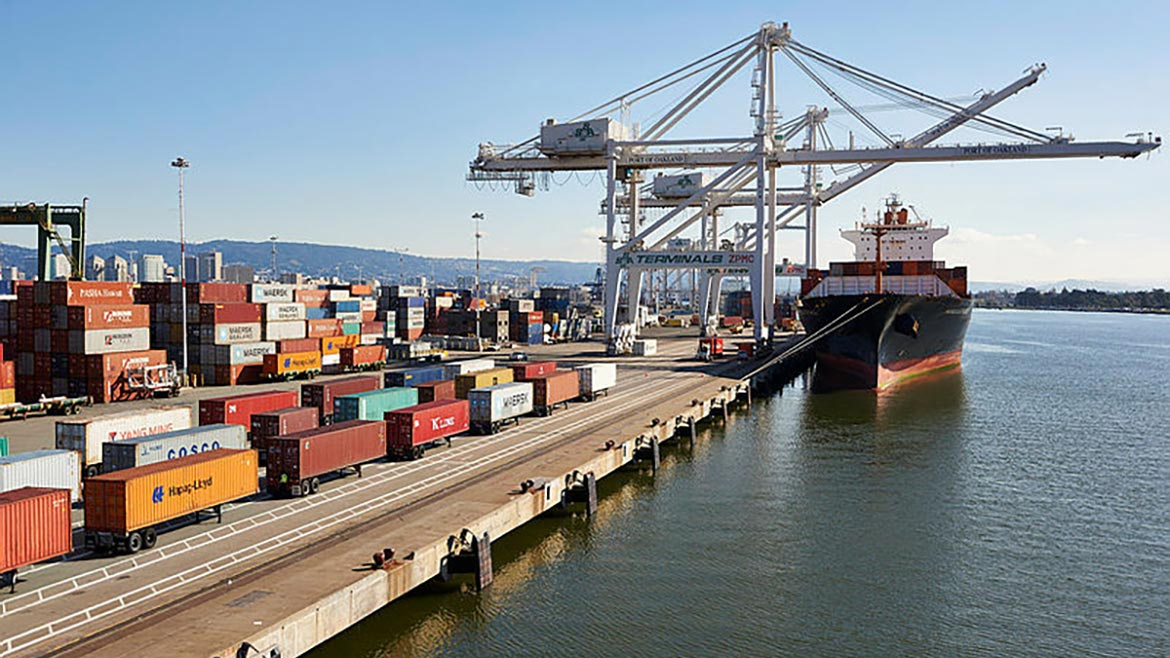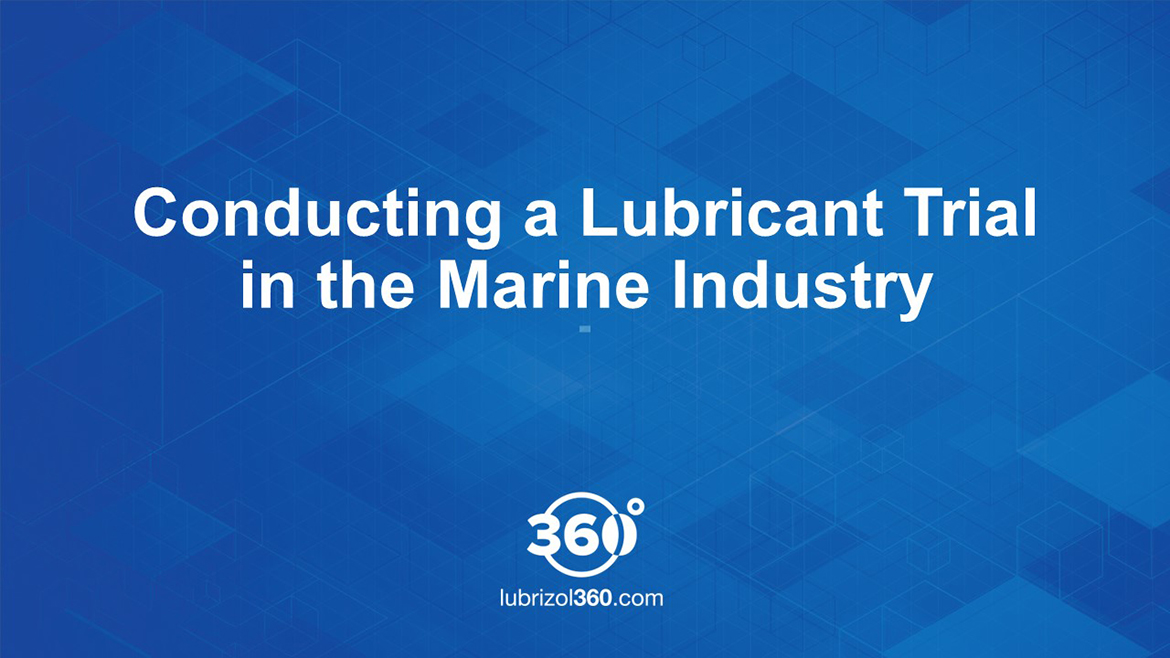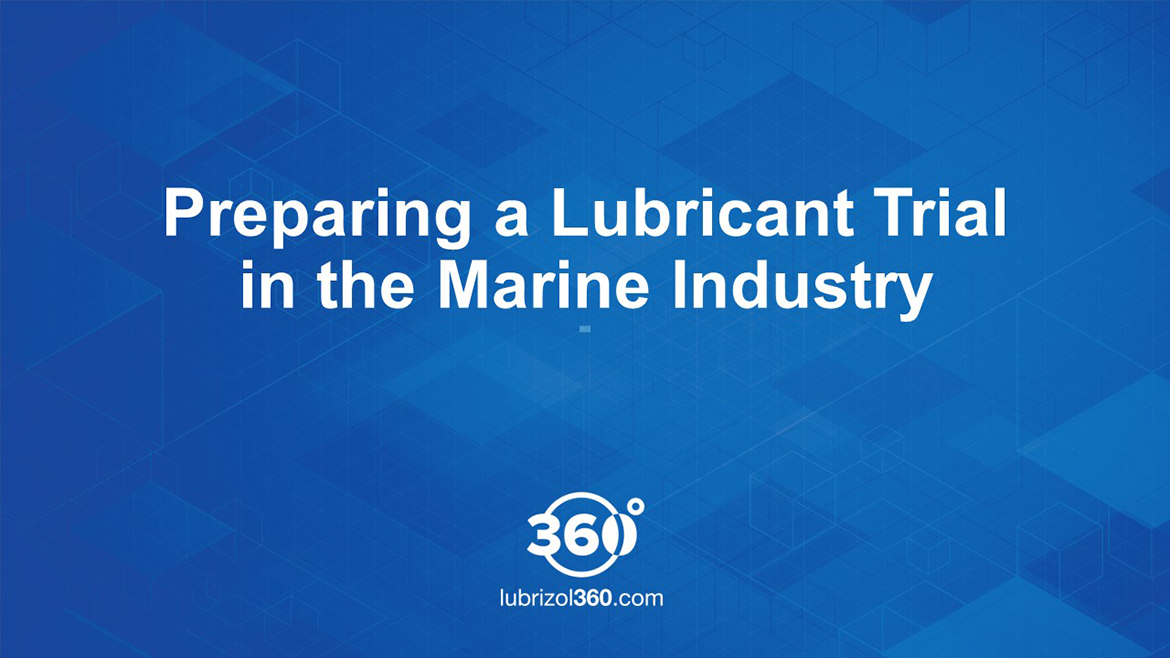Dec 5, 2022
Posted by Ian Bown, Technical Manager, Marine Engine Oils, Lawrie Peck, Technical Manager, Marine Engine Oils
This video series follows on from our video series discussing why bench tests are critical in the development of new marine additive lubricants. We will detail why additional, in-the-field testing needs to take place.
In the first video, we review why it is vital to confirm a new lubricant additives performance using engine tests and ship trials, even though we have tested and developed them using bench tests.
In our next video, we will discuss the purpose of an approval trial and how Lubrizol prepares for it.
For more information, please contact your Lubrizol representative.
Video Transcript
Lawrie Peck
In terms of all the bench testing we've got then, we've got a lot of data, why do we still need to run field trials but we've got all this data, from that bench testing?
Ian Bown
So what you've got to consider about those bench tests is that they are targeted at different elements of performance, so we have to do is view those tests as a whole and gradually we’ll reduce that number. So we come down the funnel till eventually we've probably got two or three of those samples that we think can go on to the next stage, and the next stage is the more expensive stage of engine testing, and that's where we're going to put those samples into an engine, run them against a known reference test, and then we'll evaluate the performance of those oils and from that, determine which candidate you're going to take forwards to the final ship trial.
Lawrie Peck
So what's difference between an engine test and a field trial test?
Ian Bown
In the engine tests that we run, we dismantle it, we clean it, we measure it, we photograph it and the ship trials, the difference is that we run to the procedures of the OEM's, so we meet their specifications and their requirements.
Lawrie Peck
Okay, so the bench testing doesn't give us the whole story, which is why then we need to do our own independent engine testing leading onto those ship trial tests as well.
Ian Bown
That's right, so let me give you an example, if we cast our minds back to 2020, the International Maritime Organization implemented a global Sulphur cap of 0.5%. Our development started three years before then and at that time there was no 0.5% Sulphur fuel available in the market for us to be able to test so what we had to do was to make our own in the laboratory from a range of different fuels that we got from different trials and we use those fuels then to evaluate the performance of the additive packages that we would design in the current range of bench tests that we were using at that time. We went through that funnel approach and reduced the number of candidate lubricants to two or three and eventually decided on two of those oils that we would put into a stationary engine to run the test. What surprised us was that what we saw from the engine test was different in some respects to what we'd seen in the bench testing, so we then that actually the bench testing that we were using at that time was not giving us the formulating direction that we needed for these new fuels. That was good, that helped us to redesign the bench tests so that we had correlation with what we saw coming out of the engine. So we introduced and we modified new or existing bench tests that gave us that confidence in the candidate formulations that we're developing that they would work in the engine.
Lawrie Peck
Okay, so bench tests then they’ve proven to be pretty effective and reliable when we're testing against known conditions and their requirements, but when those conditions and requirements change, they're not as effective, so that's when we need to start focusing more on confirming the lubricant performance against engine tests or ship trials.
Ian Bown
Yeah? I'm and that's why one we use a stationary engine tests. Again, it's in control conditions, but that allows us to evaluate performance of those lubricant, prior to selecting the one that we put into a real-world ship trial, ship trials are a longer duration, they are run in accordance with the engine designers' procedures. They run under real-world operational conditions. Whilst all that's happening what we've got to remember is that new engine designs are being introduced, new materials are being introduced, and if we look forward just a few more years, they'll be new fuels entering the market. So those procedures are continually evolving and it's the best place to test the performance of the lubricant.








